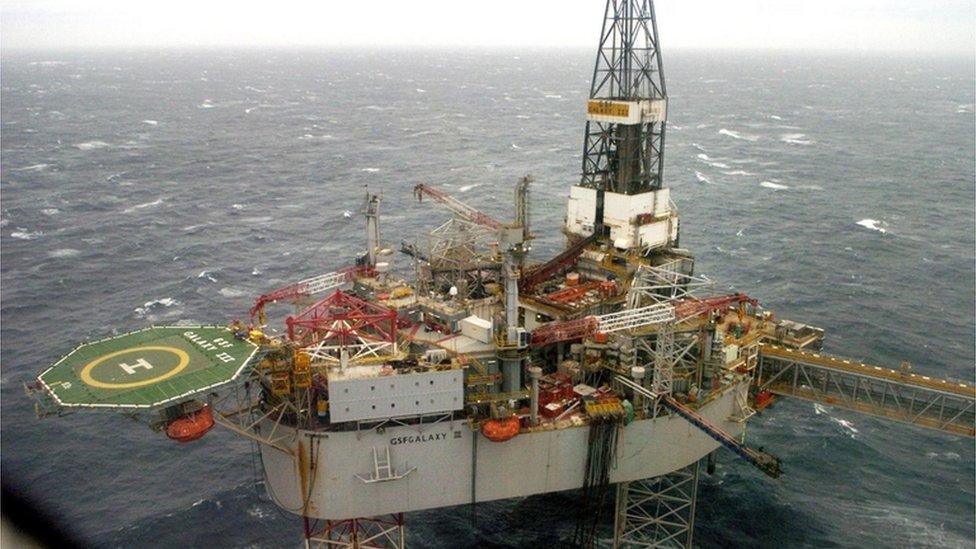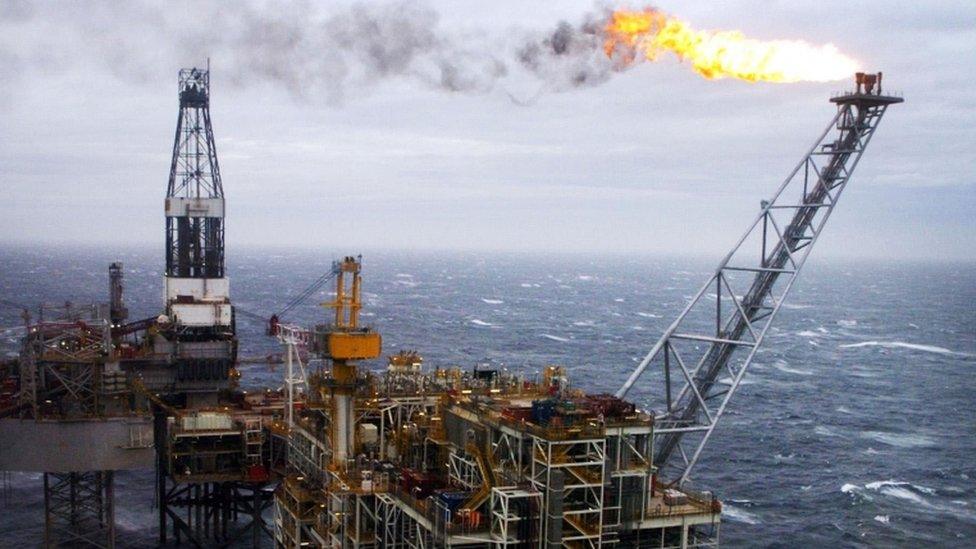Oil sector job losses 'to reach 120,000 by end of year'
- Published
The UK oil and gas sector has been hit hard by the sustained fall in the price of oil
The number of jobs lost as a result of the downturn in the UK oil and gas sector could top 120,000 by the end of this year, according to a report.
Oil & Gas UK estimated 84,000 jobs linked to the industry went in 2015, with 40,000 losses expected this year.
It said the offshore industry supported 453,000 jobs at its 2014 peak - either directly, in its supply chain or in trades such as hotels and taxis.
The new figures, external suggest 330,000 jobs would be supported by the end of 2016.
The analysis was carried out by marketing services company Experian.
Last week a Bank of Scotland/Lloyds Banking Group survey suggested that a third of UK oil and gas businesses planned to cut jobs further during this year.
Many companies have been struggling under the weight of a sustained fall in the price of oil.
Brent crude is currently trading at about $50 a barrel, less than half the price it was in 2014 when jobs linked to the sector peaked at over 450,000.

Oil & Gas UK chief executive Deirdre Michie said: "The industry has been spending more than it is earning since the oil price slump towards the end of 2014.
"This is not sustainable and companies have been faced with some very difficult decisions.
"To survive, the industry has had no choice but to improve its performance.
"It is looking to find efficiencies to restore competitiveness, to attract investment and stimulate activity in the North Sea.
"With up to 20 billion barrels of oil and gas still to recover, this region is still very much open for business."
Oil & Gas UK is due to hold its annual conference, external in Aberdeen next week to consider how it manages its way through the current downturn.
Ms Michie added: "The interventions we make now will be critical to shape the industry's direction and help stem future losses.
"Everyone in the sector can play a part. Effective workforce engagement is vital onshore and offshore, as is greater cooperation - within teams, within companies, across the industry and with the regulators and governments."
Tommy Campbell, who chairs the offshore coordinating group of trade unions, said a major summit was needed to plot the industry's future.
He added: "He need the main players around the table, and we have to remember that the cause of all this downturn isn't just the global economy.
"There are major oil operators in this area dictating the terms to other employers, to the contractors, in order for them to maintain their huge profit margin."
A spokesman for the Scottish government said oil prices had been "recovering from their previous low levels" and there had been "some improvement in investor sentiment", but acknowledged it was a "challenging time for the industry and the workforce".
He added: "We are focused on creating a competitive and supportive business environment and promoting innovation throughout the supply chain - however, it is the UK government that retains control of the key taxation levers affecting the sector, and that must take the action needed to incentivise investment to protect jobs."
- Published3 June 2016

- Published26 May 2016
